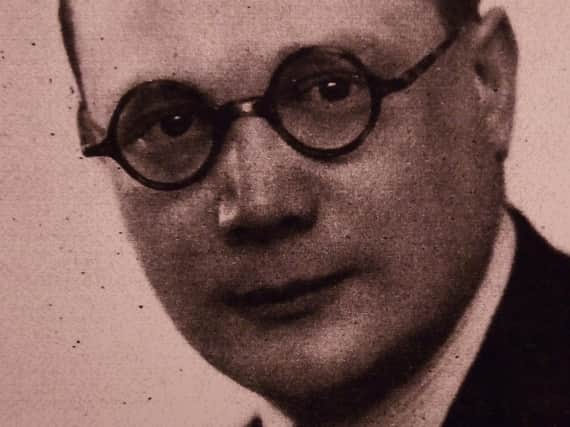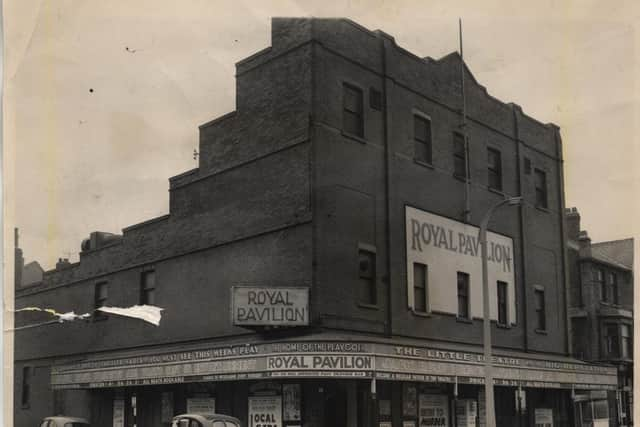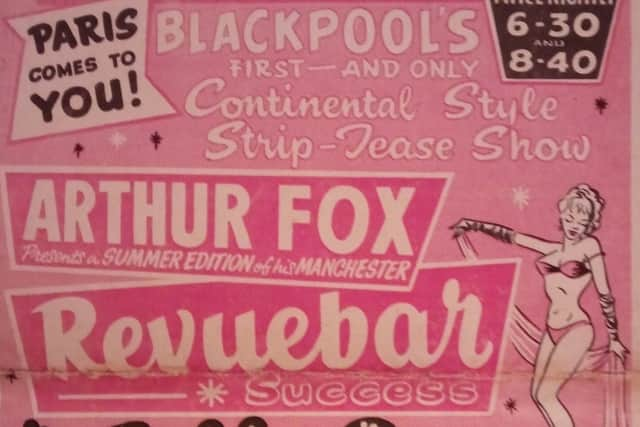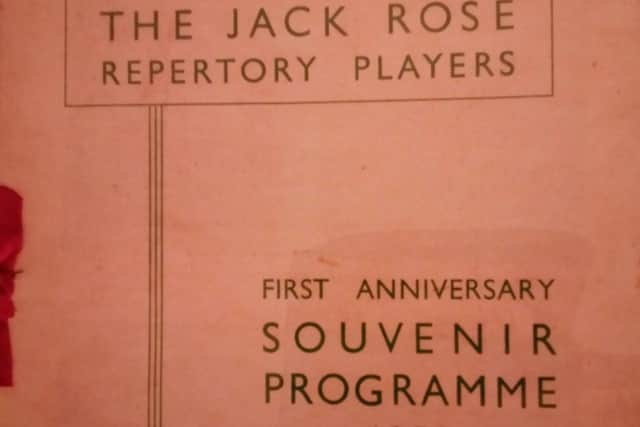The changing face of Blackpool's Royal Pavilion through cinema and repertory theatre to glamour shows


Following last week’s lament for Blackpool’s lost theatres, the younger generation and newcomers to the area may want to know where they were.
The most frequently asked questions are: “Where was the Palace” and “Didn’t the Palace become a night club?”
Confusingly, there were two venues named the Palace.


Advertisement
Hide AdAdvertisement
Hide AdThe original Palace was a huge building on the promenade block on the north side of the Tower. It was opened in 1899 as the Alhambra but soon went bust, was acquired by the Blackpool Tower Company and revamped as the Palace in 1904.
This Palace had a theatre, a cinema and a ballroom. It closed in 1961 after the arrival of television had ruined the winter patronage. It was replaced in 1964 by a Lewis’s department store which lasted until the mid-1990s, when it was remodelled as the building that now houses Poundstretcher and Viva.
Thirty years after the Palace closed another one opened two blocks south of the Tower, in the “concrete kit” building that replaced the old Palatine Hotel.
This Palace was a night club but had a much shorter life than the big Palace.


Advertisement
Hide AdAdvertisement
Hide AdThis year an ultra modern black-framed glass hotel will open on that old Palatine Hotel site, with the Showtown museum on one floor.
Back to local theatre histories with memories of a venue that had the most colourful of stories.
The Royal Pavilion was Blackpool’s first purpose built cinema, in 1909. It had three changes of name (Futurist, Plaza and Alexandra), three spells as a repertory theatre and one as a striptease place.
The Royal Pavilion period 1949 to 1968 is best remembered, when two showmen each leased the little theatre for similar periods. First came repertory producer Jack Rose in 1949 and then came Folies (French spelling) producer Arthur Fox in 1960.


Advertisement
Hide AdAdvertisement
Hide AdJack Rose and Arthur Fox had no business connection and had different backgrounds, as outlined here.
The Royal Pavilion, on the corner of Rigby Road and Tyldesley Road, was operated by several owners until Sir Frederick Emery’s Fylde Cinemas group acquired it in 1948 and restored the original name.
Within a year the company leased it to Jack Rose for his repertory company. I think the first stage play I saw was at the Pavilion, an Agatha Christie during the 1949 Illuminations season.
Our occasional contributor Ray Dolling tells us that Jack Rose began his theatrical career at 13, as a call-boy at the Manchester Hippodrome.
Advertisement
Hide AdAdvertisement
Hide AdHe became a stage manager, then production manager for impresarios Emile Littler and Sir Charles B. Cochrane but was working for bandleader Jack Hylton, as his touring manager, when he was called up into the RAF and posted to Blackpool in 1940.
Over the next four years he produced more than 200 Sunday variety concerts in the resort, mainly at the Opera House, featuring RAF personnel.
He married local girl Margaret Collinge, whose parents had an antiques shop in Poulton.
After the war he formed the Jack Rose Repertory Players in Ashton-under-Lyne with short seasons at Blackpool’s South Pier before taking a lease of the Royal Pavilion, where his cast included future television actors.
Advertisement
Hide AdAdvertisement
Hide AdIn 1954 he expanded his rep company to include the Ashton Pavilion at St Annes and continued there until he retired in 1969. He had quit the Royal Pavilion in 1958. He died in 1974, aged 69.
The Pavilion was vacant until Manchester-based Arthur Fox took the lease and launched Folies Striptease for the summer season in June, 1960.
Ray Dolling writes that Fox came from a middle class Manchester family but gave up his law studies to become a speedway rider.
A chance meeting with Jan Ralfini, musical director of Blackpool’s Metropole Hotel, led to him joining the bandleader as a booking agent before setting up as a theatrical producer in Deansgate, Manchester.
Advertisement
Hide AdAdvertisement
Hide AdHe spent the war years with the Ministry of Supply in Lytham St Annes. In 1947 he sent the first of his “girlie” revues on tour, giving himself the title King of Glamour.
After being involved in managing early rock-’n’-roll tours, including Marty Wilde, Wee Willie Harris and Terry Dene, he opened the Arthur Fox Revue Bar in Manchester, in 1959.
At the Royal Pavilion he ran his Continental glamour shows (striptease) under various titles until he retired in 1969. He died in 1970, aged 69.
The Royal Pavilion was restyled and reverted to cinema in 1970, then as a bar. The building still stands.
Comment Guidelines
National World encourages reader discussion on our stories. User feedback, insights and back-and-forth exchanges add a rich layer of context to reporting. Please review our Community Guidelines before commenting.